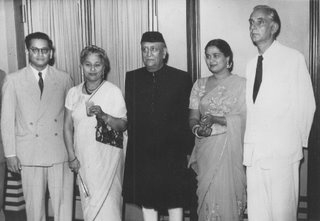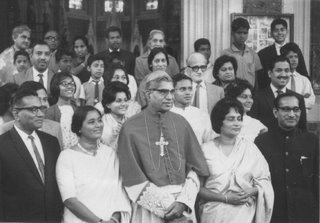Message
It is the ending of the year, and even in this tropical region a time of cold, of longer, darker nights. It is commonly a time for review and summing up; and a time for preparation. Preparation for what, do you ask? For a new calendar year, for the slow but sure return of warmth and the lengthening of days. Preparation for another cycle of striving and suffering and enduring. Striving, perhaps, to survive wrenching loss that tears half one’s self away. Bracing ourselves to suffer we don’t always know what. Enduring because immortality is ours whether we will it or no, and the manner of our enduring determines what manner of life shall continue for us, bliss without end or everlasting deprivation of our own choosing.
That death comes to all, we know. That death will suddenly and betimes cleave the soul from someone we love and leave in our hands only the cold body, unresponsive, unmoving, which once looked and spoke and acted out of love for us – for this we are seldom fortified.
Without question the pain of loss is cruellest to the nearest bereaved. But it is grievous, too, for close friends to see such pain and know themselves helpless to relieve it. Of what use are words at such a time? And by what deed short of raising the beloved dead may one end the outward and the inward weeping of a grieving friend?
We are made for eternity, whether or not we acknowledge it. And we grieve so because death is unnatural; because we are made for life and for happiness. Can there be happiness for survivors after such loss? There can be, there is. If death offends us all the way through to the deepest level of our being, so does loss of happiness. Neither loss is just. Neither loss is right.
And now comes the part that is simplest or hardest as we will it, for willingness is the point, the exercise of free will. Shall we deny the Life that exists and to which the beloved dead have returned entering into it unimpeded by mortal flesh? If we do so we shall be separated evermore from those we love who have left this earth, while that Life into whose embrace they have been drawn continues to exist despite our denial. There is no such condition as final oblivion, no matter how fiercely some may hold on to the idea of it. Nothingness is not – it has its temporary existence only in the tortured mind of mortal man.
Openly or secretly, is it the return of happiness that we desire, even one which we might qualify as “bitter-sweet” or “of a kind”? Such qualified happiness here, perfect happiness beyond, they await us all the time, no further away than an “Amen”. How simple that sounds. How simple it is. And yet how hard to abate the demand of the Self. Self says to God: “If you are there, God, if you are all they say you are, how could this happen to ME? What have I done to deserve it? And even if I did deserve it, aren’t you supposed to be a merciful God? Answer me, if you exist at all!”
He does exist and, more importantly, he is our loving father. One has to experience his fatherly love and care in one’s own life in order to speak of it confidently. Perhaps that should be amended to “recognize” in place of “experience”, for in all things it is the will, the free will, that decides whither we go.
God’s answers often come from the strangest sources, and sometimes they arrive before there was any thought of a question. “The readiness is all”, wrote the inspired dramatist, and “Ripeness is all”. He might in justice have added “Alertness is all”, for the messages come without fanfare, and not always from the acknowledged prophets. Even an enemy’s tame prophet – donkey-riding Baalam – can willy-nilly prophesy truly.
And there are sources stranger yet by reason of their incongruity. The light that, from time to time, illumines the path before us does not always come from candles on the altar. Sometimes it could be the flashing reflection from a sequinned costume on a performing artist. All is grist to the Maker’s mill; he will seek to capture our attention by every conceivable and inconceivable means. Thus, hours before hearing of the death of a most dear friend, there came from such an unexpected source strengthening against the shock to come. Paraphrased from it comes the following expansion of the aforesaid “Amen”:
“My father, how can I understand what you are doing to me or why you are doing it? I don’t. I can’t. But I know I must hold on to you, Father, or I am lost. From a broken heart, Father, I say ‘Amen to your will’”. To such a prayer there has always been only one answer from our Father.
The Collect for the 22nd Sunday of the year in Ordinary Time says the same thing differently, and it serves for a daily preparation against the thousand natural shocks that flesh is heir to:
'Lord God of power and might, nothing is good which is against your will and all is of value which comes from your hand. Place in our hearts the desire to please you, and fill our minds with insight into your love, so that every thought may grow in wisdom and all our efforts be filled with your peace.'
IN MEMORIAM

Carmen D'Sa
20 October 1939 - 13 May 2006

Udayan Chinubhai
25 July (1929?) - 1 September 2006

David Fernandez
23 February 1959 - 20 October 2006

9 September 1941 - 2 December 2006
Fly, soul, to the gates of Heaven, opened wide for you;
while angels sing and all the trumpets sound.
while angels sing and all the trumpets sound.
©2006 by Ruth Heredia
Ruth Heredia is the originator and
holds the copyright to all material on this blog unless credited to some
source. Please do not use it or pass it off as your own work. That is theft. If
you wish to link it, quote it, or reprint in whole or in part, please be
courteous enough to seek my permission.

















 On to the orderly disorder of the walled city. Those shops! Dark narrow corridors running perpendicularly into old buildings, shelves lining either wall.
On to the orderly disorder of the walled city. Those shops! Dark narrow corridors running perpendicularly into old buildings, shelves lining either wall.












